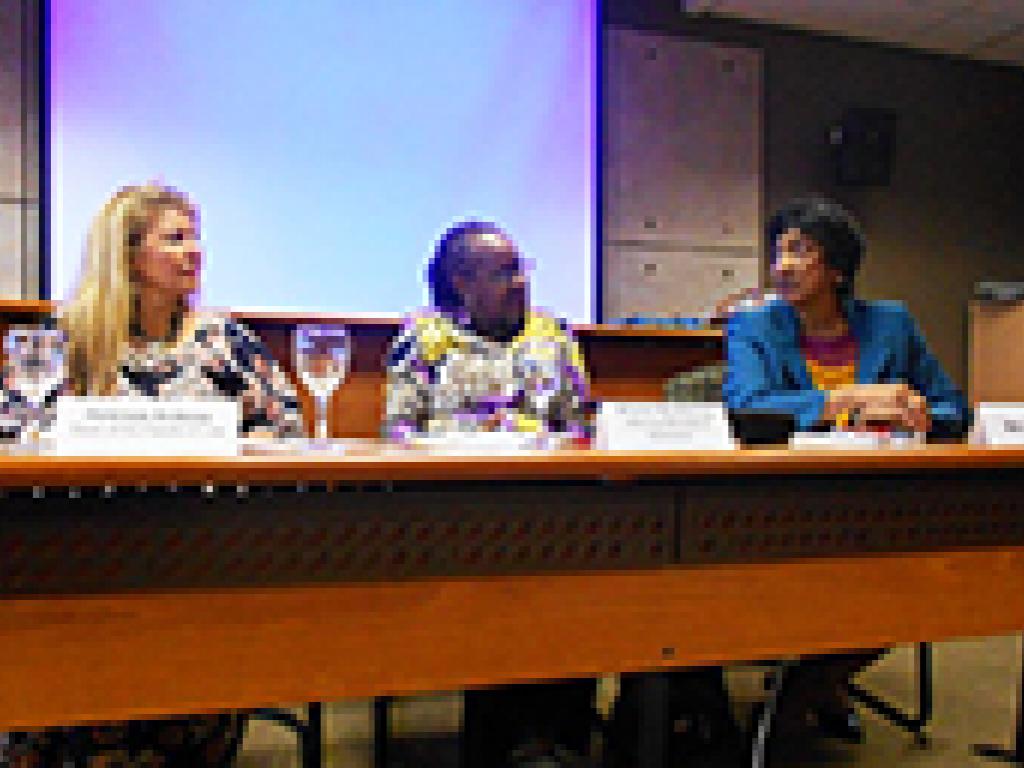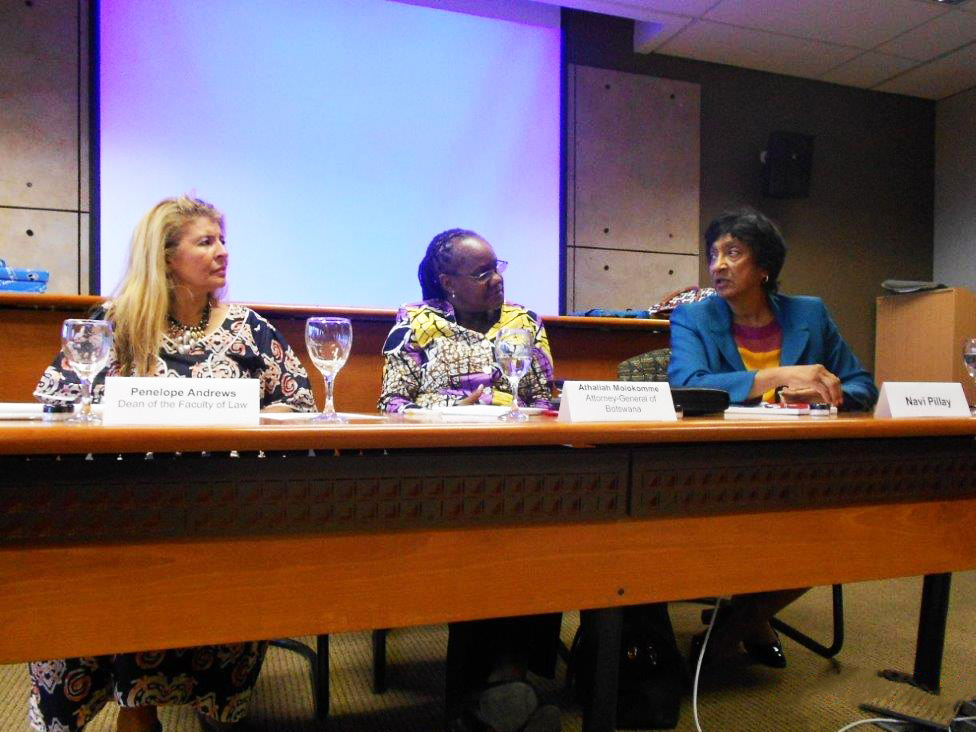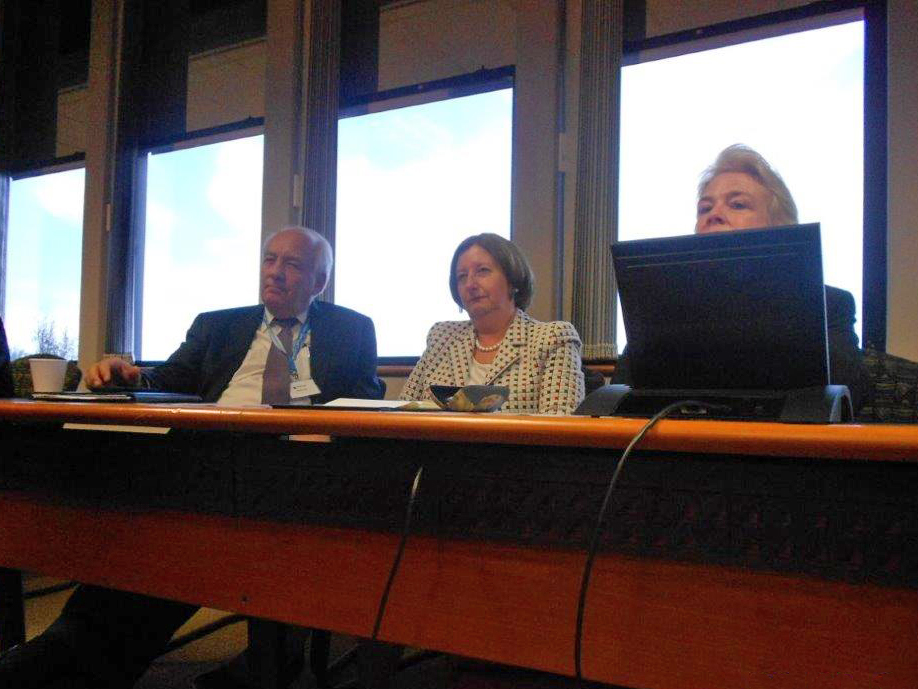Lively debate on Law and Social Justice

On 22 March Dean Penelope Andrews hosted two events at the Faculty: A conversation with Navi Pillay, former United Nations High Commissioner for Human Rights, and Athaliah Molokomme, Attorney-General of Botswana. The conversation was followed by a cocktail reception at which Silvia Fernández de Gurmendi, President of the International Criminal Court (ICC), provided introductory remarks.

From left Law Dean Penelope Andrews, Athaliah Molokomme, Botswana's Attorney-General, and Navi Pillay, former UN High Commissioner for Human Rights.
The conversation focused on the major human rights issues facing South Africa and other countries, and the commitments of government to promote and protect the human rights of their citizens. Questions were raised about the perceived tension between security (regarding terrorism) and crime on the one hand, and human rights and freedoms on the other. Judge Pillay stated that human rights should never be compromised, and that the fight against terrorism or crime could be carried out within a human rights framework.
Both Pillay and Molokomme had spent significant parts of their careers dedicated to the rights of women. During the conversation they discussed the status of women in the legal profession, including the idea that as women entered the profession in increased numbers, the legal profession might lose its status. Pillay warned women to be vigilant of their constitutional rights, and to fight to ensure that those rights continued to be pursued, implemented and strengthened. She used the United States as an example where women’s rights, especially women’s reproductive rights, are being eroded by the Supreme Court.

Sitting in the audience was Silvia Fernandez de Gurmendi, President of the International Criminal Court.
Questions were also raised about the role of the ICC in Africa, particularly the perception that the Court is “anti-African”. Molokomme noted that the establishment of the Court occurred largely in the wake of widespread conflict and internal wars in Africa, and that many violations had occurred in Africa just before the Court was set up. That is why the first few indictments were issued against African defendants. She told the audience that governments signed on to the Court, and they should work hard to preserve the integrity and legitimacy of the Court. Pillay reminded the audience that it was in fact African governments, that were party to the Rome Statute (that set up the International Criminal Court), that had referred the cases to the Court. One question was raised about whether South Africa should stay as a party to the Rome Statute – to which Pillay replied in the affirmative. Molokomme stated that she was very happy that her country, Botswana, was one of the earlier signatories.
The thought-provoking and insightful conversation was followed by a cocktail reception, opened by De Gurmendi, who commented on the lively debate that preceded it, also adding how thrilled she was to be visiting UCT.